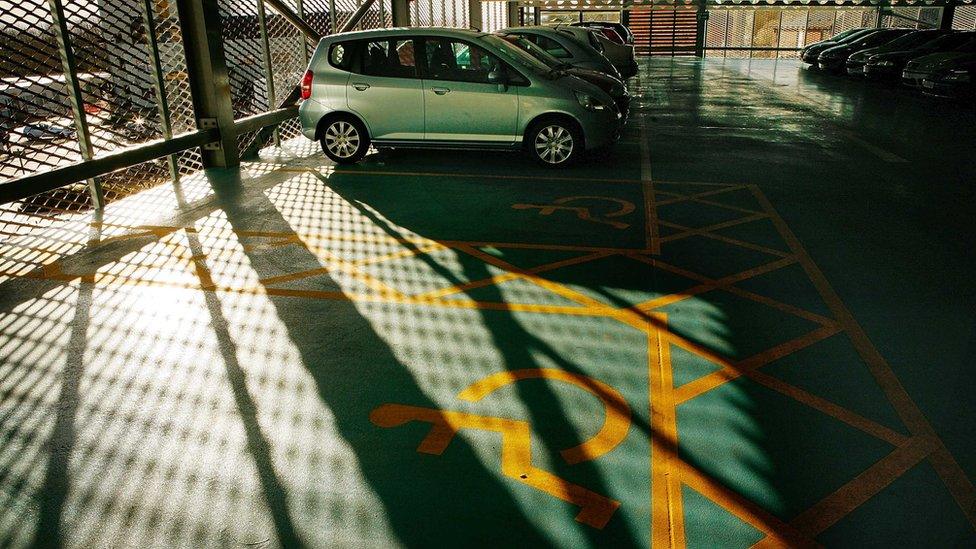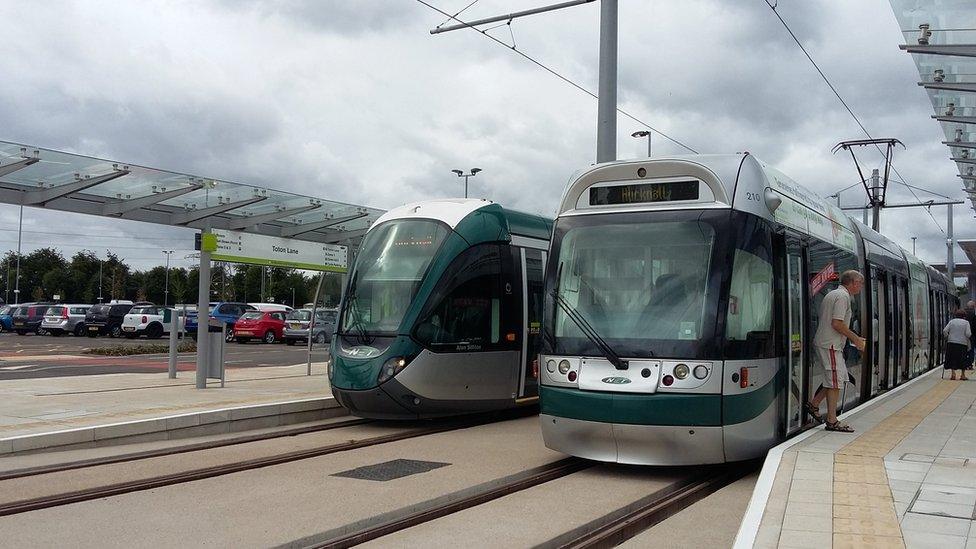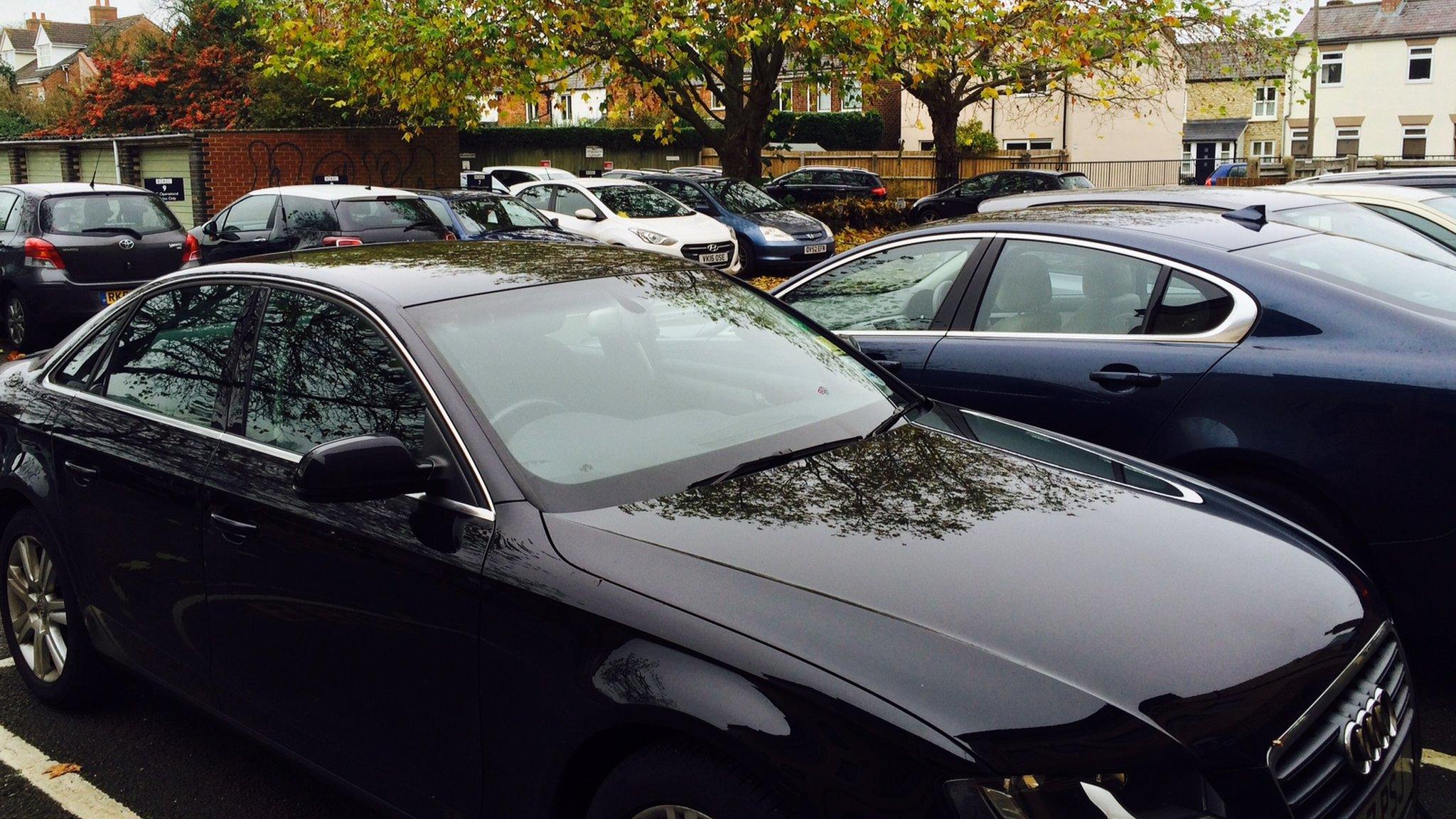Council ponders workplace parking levy
- Published

A controversial levy on workplace car parking is being considered by councillors trying to cut road congestion in Oxford.
The proposal to charge firms a fee per employee car parking space faces tough opposition from businesses.
Oxfordshire County Council is set to fund a study of plans to replicate a scheme in Nottingham which is raising £9m a year for public transport.
A levy is also being considered in Cambridge.
Supporters say such schemes will cut traffic, reduce pollution and liberate commuter parking spaces for shoppers.
Powers for councils to impose a workplace parking levy were introduced by government 16 years ago.
New schemes
The firms can choose to pay the fee themselves or pass it on to employees.
Each time a council considers the levy, it is fought by businesses warning that jobs will be lost. So far only one council - Nottingham City Council - has taken that risk.
Four years into the scheme the council's transport chief Nick McDonald says cash from the levy has allowed the authority to complete two new tram lines, install widespread cycle schemes, introduce electric buses and create the UK's biggest municipal bus fleet.
New business parks were being built on tram lines, he told BBC News. What's more, he said, the scheme has actually helped business.
"The reality is that we haven't seen a single business leave the city as a result of the workplace parking levy" he said.
"If you look at our inward investment, it's gone up. Start-up businesses have gone up as well.

Nottingham City Council said it spent the proceeds from the levy on expanding the tram network
"It's never an easy thing to introduce policies strongly resisted by the business community. But in this case we felt confident that it was the right move and we have been proved correct. Firms can now see the advantage of being in a forward-looking city that's developing world-class public transport."
The actual impact on jobs is disputed. One firm, Games Warehouse, did cite the levy as one reason, external for shifting to Derby. But the council says other firms have arrived in its place.
Still, other local politicians are cautious about the scheme. Birmingham rejected a levy after opposition from business. In Oxfordshire, the council is stepping gingerly forward with a study into the potential impacts.
The Oxford-based retail consultant Keith Slater calls it a tax in disguise.
"My main concern is that it's just another cost for businesses in Oxford who are already paying for any car parking spaces they have because they are subject to business rates," he said.
"So they're paying out money but not getting anything back from doing so."
'Lost business'
But supporters of the scheme say business does benefit - from less congestion and pollution, and better public transport.
And here's an intriguing development: the employers' group, the East Midlands Chamber, which originally fought the Nottingham levy when it was imposed, is now neutral on the issue.
Its policy director Chris Hobson said: "Now the tram's in place it's undoubtedly beneficial for the areas served, although there are still some areas that feel they have lost business as a result."
The chamber said most businesses did not understand when the levy was imposed that it could be offset against other tax demands.
"In a way it became just a different means of collecting tax, but with the money going straight to Nottingham instead of central government," a spokesman said.
The AA remains strongly opposed. Its president Edmund King said: "In essence the levy is a tax on work. It either increases the costs of running a business or puts an extra burden on drivers who already pay almost four times as much in motoring taxes as is spent on roads."
He said shift workers who needed to use their cars could be disproportionately hit by a levy.
But public transport campaigners hope discussion over the levy will prompt broader reform of workplace car parking.
'Bus bonus'
Accountancy firms like Deloitte charge their employees for using valuable car park spaces in order to ensure fairness between drivers and people who walk to work.
Stephen Joseph from the group Campaign for Better Transport says the chancellor should consider this in his forthcoming Autumn Statement.
"Employee car parking is completely untaxed as a benefit, while if employers give public transport season tickets to their workers they are fully taxed," he said.
"Even the USA, land of the car, taxes some car parking and gives a benefit for public transport commuting. We want at the minimum the chancellor to introduce a "bus bonus" to support those who commute by bus, but get no tax benefit."
Green groups point out that even public transport pollutes - so the greatest incentives should be given to those who walk or cycle to work.
The Treasury wouldn't comment.
The other UK city where a parking levy is being actively discussed is Cambridge.
The county council said it was staging a detailed consultation with employers to reach a solution matching the needs of the Cambridge region, which it noted, were "very different" from Nottingham.
A decision on the scheme would be made in January, the spokesman said. Cambridge, too, is facing push-back from firms which label the idea a tax on business.
So, is Nottingham the only city where a workplace levy will improve public transport and cut congestion and pollution? That seems unlikely.
Is it the only city that will take a political risk to find out? That is a different question.
Correction: An earlier version of this story incorrectly said Games Workshop had moved to Derby rather than Games Warehouse.
Follow Roger on Twitter @rharrabin, external
- Published15 November 2016
